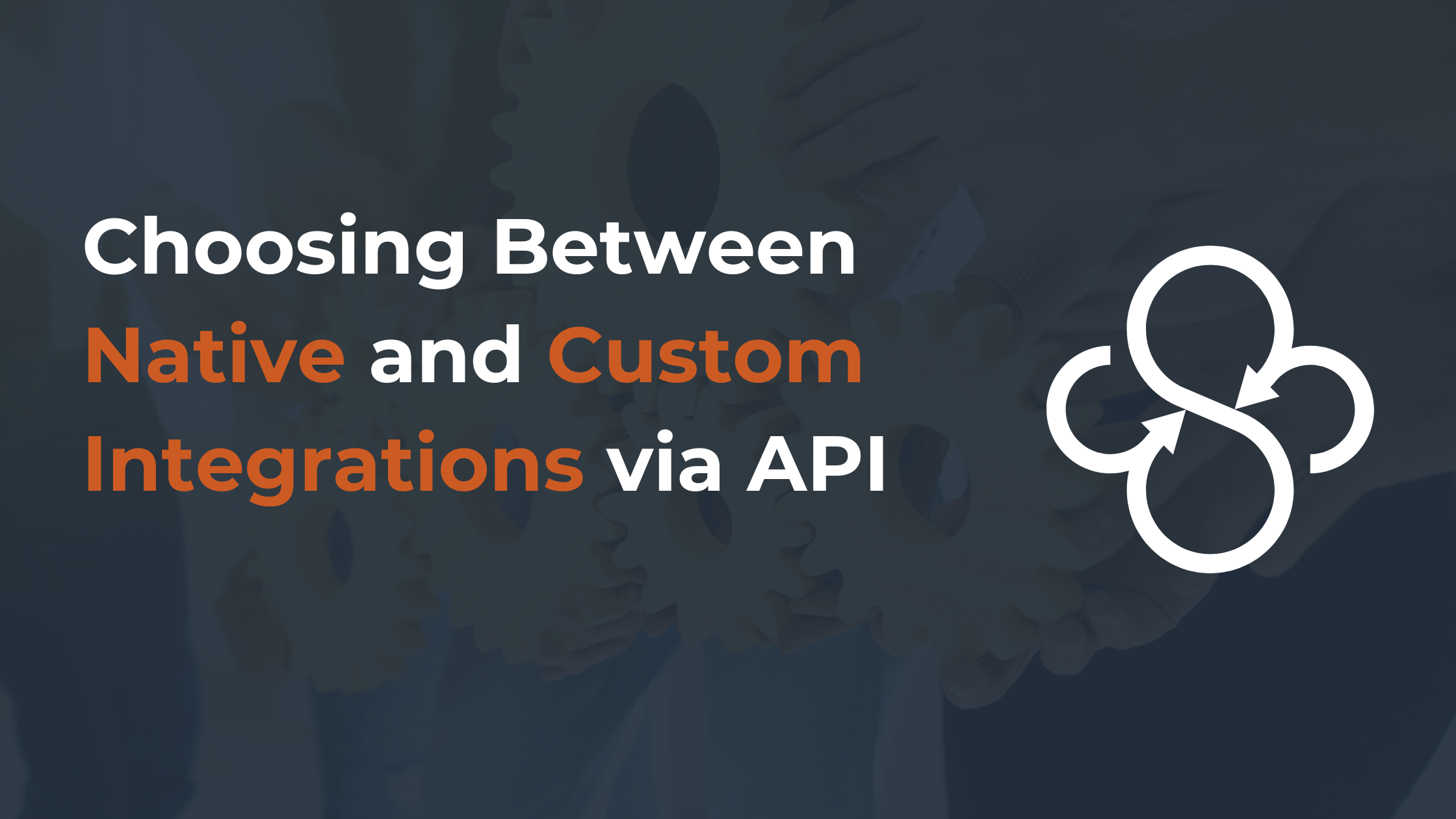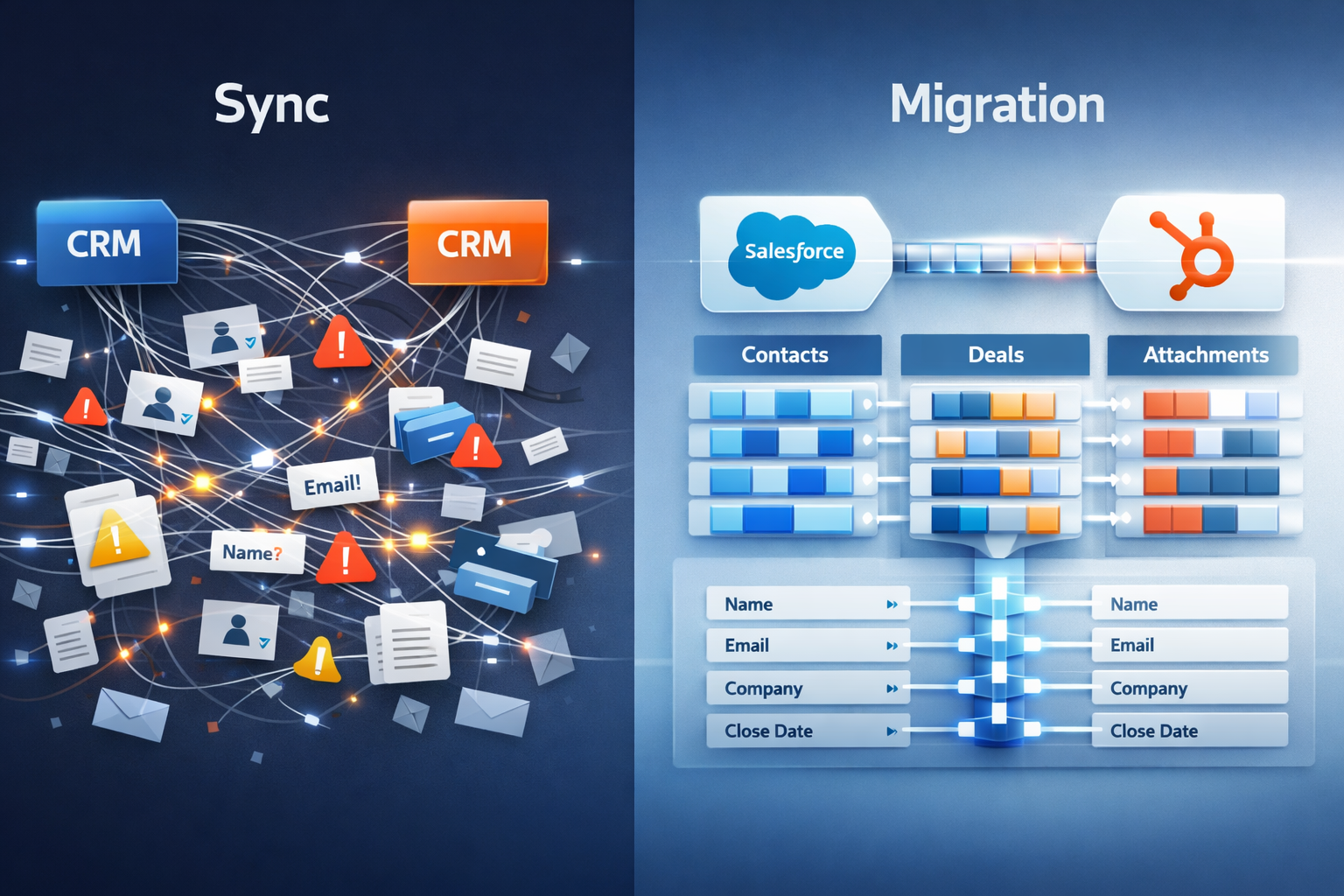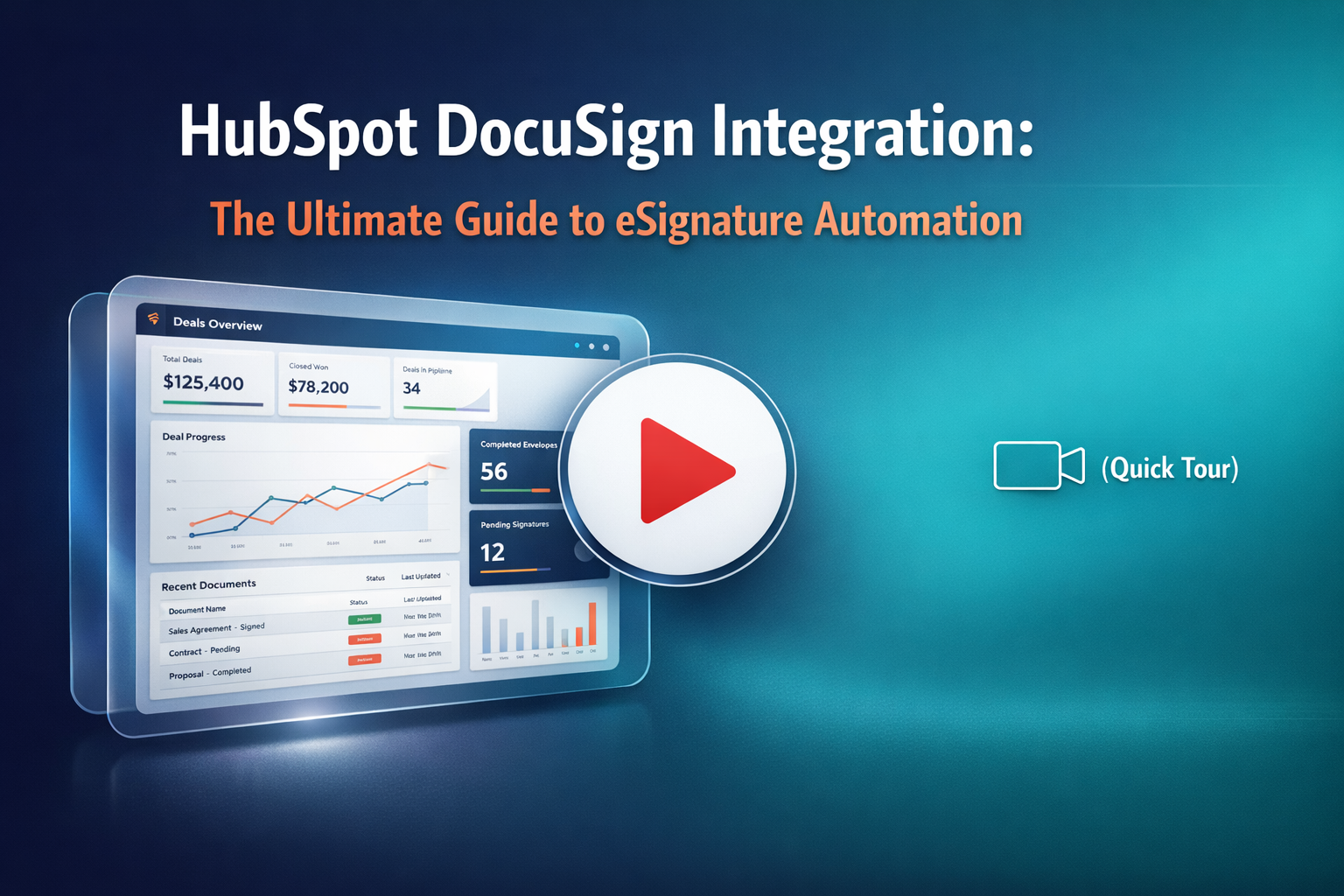Integration between various software applications is an important requirement for an organization to automate workflows, streamline processes, and improve efficiency and productivity in a fast and dynamic business environment. As you navigate the vast landscape of integration options, you'll inevitably face a choice: Do you prefer native integrations or an API integration approach?
Native Integrations: The Pre-Built Advantage
The native integrations or pre-built or out-of-the-box integrations are created and developed by the software vendor themselves. By using these integrations, two applications can communicate and share data within themselves, natively, without the requirement of custom codes or much development work.
For example, HubSpot, a leading customer relationship management (CRM) and marketing automation platform, has many native integrations with different third-party applications under its app marketplace.
Native integrations are easy to use and quick to implement is one of the major advantages. They usually need few settings and can be obtained by a few clicks. This is the reason for which they become a viable choice for companies that want a quick and easy-to-implement solution to make their tech stack look like a single unit.
Pros and Cons of Native Integrations
Native integrations offer several benefits that make them appealing to businesses:
- Seamless Integration: Specifically, native integrations are built to operate smoothly with the core features of the applications they link avoiding problems or inconsistencies in the user interface.
- Reduced Development Effort: With the integration work done by the software vendor, there is no need to allocate resources for custom development or maintenance.
- Regular Updates and Support: Native integrations of software vendors are constantly updated and improved as bugs get fixes, security patches, and new features get added.
However, native integrations also have some limitations:
- Lack of Customization: Although native integrations address typical scenarios, they don't necessarily fit well with your actual business needs or exclusive workflows.
- Vendor Dependency: You will be bound by the roadmap and timeline of the software vendor for the development and enhancement of the native integration capabilities.
- Limited Scope: Some native integrations may not provide you with all the features that you need, especially if your specifications are highly specialized.
API-Based Custom Integrations
However, custom integrations through APIs become a good alternative when native integrations do not meet the specific requirements of your organization. APIs which stands for Application Programming Interfaces are groups of protocols and regulations which enable different types of computer programs to communicate and interact with each other.
Through the use of APIs, developers can create bespoke integrations specifically suited to the unique needs of your company. This approach offers several advantages:
- Flexibility and Customization: Custom integrations give you the freedom to implement solutions that are tailored to your particular business operations and workflows.
- Scalability and Future-Proofing: The custom-based integrations are also easily modified and extended as your business develops and changes, making the solution viable in the long-term.
- Unique Functionality: Custom integrations can help to provide the functionality you may not get using native integrations if you have specialized requirements or need to integrate niche applications.
However, custom integrations also come with their own set of challenges:
- Development Effort and Cost: The process of developing custom integrations is resource-consuming, and it includes expert developers and focused project management.
- Maintenance and Updates: The custom integrations require a constant maintenance and update to make sure they work properly with the integrated applications of the latest versions.
- Security and Compliance: Custom integration projects may be complex due to the necessity to maintain the proper security and data protection regulation compliance.
Choosing the Right Integration Approach
The decision between native integrations and custom integrations through API is determined by your particular business requirements, the complexity of your integration needs, and the presence of relevant native integrations.
With software applications that have native integrations which support the core use cases and these integrations are well aligned with the business processes, native integrations may be the cost-effective and efficient option. They will manage to address the most typical integration issues without the requirement of long custom development.
Nonetheless, if your integration needs are highly specialized or if the native integration capabilities of your software applications are restricted, custom integrations via APIs could be the smarter option.
This method enables you to develop custom solutions that meet your specific needs, however at a higher cost for development and maintenance. However, sometimes a hybrid method, with native integrations and custom integrations mixed, may be the best solution.
For instance, using native integrations for the common use cases and developing custom integrations for some gaps or distinctive requirements.
In the end, it all depends on a thorough analysis of your organization's short-term and long-term integration needs, the available resources, as well as the trade-offs between the development effort, flexibility, and cost.







